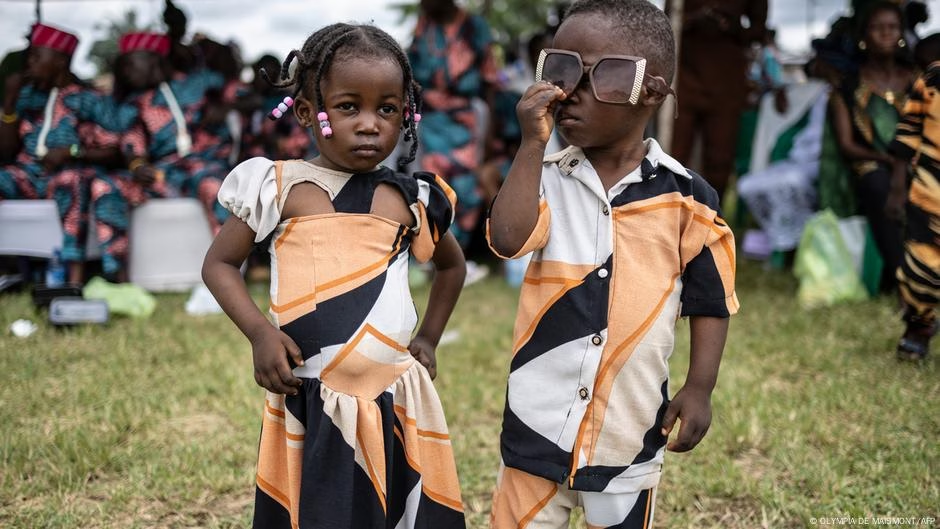Susie Lee from the Max Planck Institute for Demographic Research in Germany states that “a significant task remains to guarantee that twins can survive their early life as easily as singletons do.”
This is especially true in Sub-Saharan Africa and South Asia, where expectant mothers already face challenges in accessing healthcare.
Lee, who co-authored a recent study, says that fewer twins are being born in countries with lower incomes.
In general, this increase is due to population growth — even though the proportion of twins born doesn’t change, more people having children means more twins.
However, in countries such as Nigeria, twin birth rates exceed the global average. With the population expected to nearly double by 2050, the number of twins will rise correspondingly.
Women are also having children at older ages when fertility tends to decrease.
Many parents, especially in high-income countries, turn to medically assisted reproduction (MAR), including in vitro fertilization (IVF), where eggs are fertilized in a lab and the resulting embryos transferred into the uterus.
A Matter of Life and Death
Although all pregnancies need comprehensive care, twins pregnancies carry higher risks for both mother and babies, requiring more medical attention before, during, and after birth.
In countries with limited healthcare access, some women, especially in rural areas, never receive medical examinations. This endangers the lives of the developing child and increases the mother’s risk of illness or death.
Eighty percent of twin births occur in Asia and Africa, where mortality rates are high.
In Nigeria, about 3 in every 100 pregnancies are twins; compared to the global average of around 1 in 100. Across sub-Saharan Africa, one in five twins dies before the age of five, according to a 2017 study.
Twin pregnancies are also at a higher risk of miscarriage or death after birth.
Ultrasounds Provide Basic Care
Generally, medical care should start before birth.
“In many countries, the percentage of women who receive what the World Health Organization recommends — at least one ultrasound examination before the 24th week — is surprisingly low,” Christiaan Monden, a sociologist from the University of Oxford, UK, said.
Ultrasounds are crucial to detect twin pregnancies and possible irregularities.
“There’s a high number of women in that situation without this basic service and they are vulnerable,” said Monden.
This situation can worsen in hospitals lacking electricity, which is essential for ultrasound devices.
In their study, Lee and co-author Kieron Barclay called for “greater public health attention and societal support for twins and their families in low-income countries, given the higher risk of developmental challenges and health disadvantages for twins.”
Hope in AI and New Technologies
New technologies could improve healthcare access.
Ultrasound machines are typically bulky and only available in city hospitals. This can force mothers in rural areas to travel, a cost they also need to bear.
Portable ultrasound machines could provide an alternative.
These machines are more affordable ways for midwives in rural areas to detect twin pregnancies and provide family support.
To overcome the extensive training required to interpret ultrasound scans, artificial intelligence could soon support local staff in diagnosing and interpreting the results, reducing training times and improving the accuracy of diagnoses, according to a 2021 opinion by University of Massachusetts radiologist Young H Kim.
Although these services are not yet available everywhere, Monden hopes that they will enhance basic health care for pregnant women in the future.
“I hope that we don’t have to discuss the fact that there are women who do not get these types of scans and actually go into labor, not knowing for certain whether they had twins or not,” Monden said.
Edited by Matthew Ward Agius








